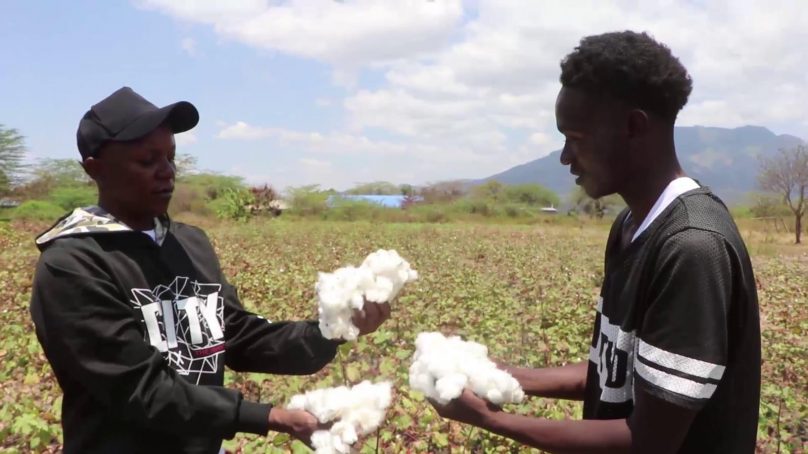
A fierce scramble for rewards that accrue from cotton farming is driving the revival of the sub-sector that had for long appeared to be on the deathbed in Taita Taveta County, giving hope to armies of jobless youth that had thrown in the towel and resigned to a life of abject poverty.
Among those riding the wave is 21-year-old Paul Rukwaro, a school leaver from Marondo village in Taveta Sub County. Determined to pursue his dream of becoming a teacher, Rukwaro has embraced cotton farming to raise money for university fees.
The young farmer, who scored a C+ in Kenya Certificate of Secondary Education (KCSE), hopes to join one of the universities in Kiambu County to pursue a bachelor of education degree. However, poverty has stood in his way. With his parents unable to pay his tuition, his father gave him a rare gift – a two-acre piece of land to farm.
“I want to go to university and train as a teacher but my parents cannot afford the fees. My father gave me land so I could farm and raise the money myself,” he explained as he stuffed his first harvest into sacks, his hands roughened by farm work but full of hope.
Rukwaro’s story mirrors a wider shift in Taita Taveta, where more than 100 young people have turned to cotton farming in recent months. The revival is fuelled by the government’s decision to raise the buying price from Ksh52 to Ksh72 per kilogramme, a change that has injected fresh energy into the sector.
For years, cotton farming was dominated by the older generation but the new incentives have attracted youth eager to earn a living and secure their futures.
Thika Cloth Mills (TCM) Development Manager Hesmond Olweny who recently toured the county, praised the young farmers.
“It is encouraging to see youth take up cotton farming. For years, it was dominated by older generations, but this shift is the future of textile industry revival in Kenya,” he said.
Olweny assured farmers that TCM would buy all the cotton produced and highlighted the company’s support to farmers through subsidized seeds and fertilisers.
The transformation is also visible in farmers’ groups. Chausiku Ramadhani, chairperson of the Pamba ni Mali Cotton Farmers’ Cooperative, said youth now form a significant part of her membership.
“Out of our 300 members, more than 100 are young people. They are leading the way, thanks to better prices, free seeds and the introduction of BT cotton that matures in three months and resists pests,” she noted.
Traditionally, cultural practices discouraged fathers from giving land to their sons, locking many out of farming. That is now changing with parents increasingly handing over land to their children and opening up opportunities for youth to venture into agriculture.
Although Rukwaro admits that his first harvest may not fully cover his university tuition, he remains optimistic.
“I appeal to well-wishers to support me so I can join university. I want to graduate and return to teach people in Taita Taveta. That is my dream,” he said.
For him, each fluffy ball of cotton is more than just a harvest. It is a step closer to fulfilling his ambition of standing in a classroom, not as a student, but as a teacher shaping the future of others.
- A Tell Media / KNA report / By Muoki Charles







